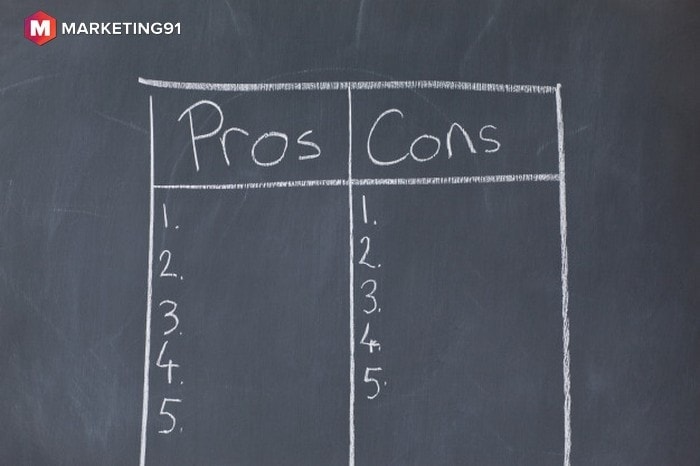Have you ever come across a question where there is no possible answer than Yes or No? Well, there might be a chance that you have come across the amazing close-ended questions.
There is no doubt that many companies have asked close-ended questions to the people who are their customers.
However, there are some other applications of the questions as well.
The main idea behind the creation of these close-ended questions is to make sure that the people can create some quantitative data to make sure that they can establish some statistical significance for it.
Also, there is no doubt that with the help of close-ended questions, the responders will be able to answer in a much quicker manner and will not disengage as well.
In this post, we will be diving deep into the world of close-ended questions and understand their significance for businesses. So, let us unravel the mystery here and now-
Table of Contents
Introduction
Questions are some of the most important parts of the world that we live in.
From asking for the time to people to asking someone a very special question, there is no doubt that there are so many different types of questions that people can ask one another.
However, when it comes to the business front, we can classify these questions into two different types- The open-ended questions and the close-ended questions are the ones that we are talking about.
Now, when it comes to the open-ended questions, there is simply no doubt that you need to know what these are when you want to differentiate it from the close-ended questions.
So, we are going to discuss a little bit about these in detail. So, without wasting any more of your precious time, let us get on with the questions right here.
Difference between Close-Ended Questions & Open-Ended Questions
To know about the close-ended questions, you do need to know about open-ended ones first. This way, you will be able to understand the difference between these two properly.
Well, the open-ended questions are the ones where the answers can vary from person to person. So, the answers might be different in each case.
Don’t you understand what we are trying to say here?
Well, let us provide you with an example so that you can understand us in a better way. Well, to be honest, the open-ended questions have some very different answers.
For example, if someone asks about three different flavors of ice-cream or what their favorite flavor of ice-cream is, then their answers will be different. There is a chance that one might like chocolate, and the other might like strawberry or vanilla.
So, there are different answers every single time. You will not be able to make any form of prediction for these answers as well. That is all we have to say about the open-ended questions.
Now let us move on to the closes ended ones to provide you with a better idea in here.
What Exactly Are Close-Ended Questions
Now that you know a little bit more about the open-ended questions, we are going to talk a little bit more about the close-ended questions so that you can easily understand how these two are different.
Well, in the case of the close-ended questions, there can be only one answer or two and not any more than that. The person can answer the question in a Yes and a No.
So, there is an ease with which the person asking the question will be able to predict the answer.
In a way, it can be said that the close ended questions has very limited answers which are of a certain kind for sure. Do you think you are still not getting the point that we are trying to make in here?
Well, with the help of an example, you would understand the point correctly and that too, without any trouble.
For example, if someone asks you, do you like chocolate ice-cream, then you will only be able to answer in a Yes or a No. There is no question for any other answer for sure. So, there is no doubt that close ended questions are pretty much different from the open-ended ones based on answer.
In open-ended questions, the answers are not limited to two choices, but in the close-ended questions, they are. So, that is all you need to know about the difference between the close-ended and the open-ended questions.
Examples of Close-Ended Question
Some of the main examples are:
- Does our product provide you with the benefits that you want?
- Are you satisfied with the services that we offer?
- Are the results according to your liking?
- Do you happen to like what we have to offer here?
Close-ended questions are different than the open-ended questions because these are the ones that have a freer form and tend to be a lot longer than the close-ended questions for sure.
These are the questions that are asked to the people to know the explanations and opinions that they have regarding a particular topic.
Why Should Businesses use Close Ended Questions?
Now that you are familiar with the difference between close ended questions and open-ended questions, it is time to get into some other details which might be of interest to you.
Here we are going to talk a little bit about the benefits of having close ended questions.
#1. Easy Answers of Close-Ended Questions
One of the most important advantages of the close ended questions is that the respondent will find it very easy to answer these questions.
Since there are only two options provided to them, the choice becomes much easier because they don’t have to think about it much, Whether it is a difficult question or an easy one, they don’t have to take much time for answers.
#2. Simple Comparison between Questions
Apart from the easy answers, it is also very easy to compare the answers that are provided for the close-ended questions.
There are only two options that the respondents have to choose from, and there is no doubt that most of the answers are pretty similar. Hence, when it comes to the comparison, there is not much trouble for the person who is comparing the answers of the close-ended questions in the first place.
#3. Easy To Code
The answers that are provided for the close ended question will also be very easy to code and then analyze too.
There is no doubt that most of the questions will have the Yes/ No answers and that is why creating the decoding format for these answers is going to be much easier than the open-ended questions where the answers are all pretty different.
So, there are not many tasks involved with the analysis and coding of the close-ended question. This is another one of the main benefits that people need to keep in mind for sure
#4. Easy to Replicate Questions
Another one of the major benefits that come to mind regarding the amazing close-ended questions is the fact that these are pretty easy to replicate as well.
The answers are all pretty much the same, and hence, the replication task becomes a bit easier for the people. This is certainly an important thing that one needs to keep in mind.
Let us now have a look upon some of the pros and cons of Close-Ended Questions to understand the practicability of these for the businesses-
Pros and Cons
There are many different upsides and downsides that people need to know about for sure. With the basic understanding, people will be able to create better close-ended questions for their customers.
Pros
- One of the best benefits of the close-ended questions is that it is particularly time-efficient. This is especially the case for the people who are answering the question.
- The results which are gathered from such close-ended questions are pretty easy to look into and analyze as well since there are just two possible outcomes
- In case there is a respondent who is currently struggling in order to have a basic understanding of a particular question that is asked to him, then there is no doubt that he will have all the help that he needs by looking at the answer options that are provided. This offers a better context to the question as well.
- The answers that are collected from the close-ended questions will have a lesser chance of being irrelevant as is seen in the open-ended questions
- In case the respondents would like to provide a completely unique answer, you will be able to add an ‘Other’ option in the answer section as well
Cons
- There is no doubt that you will need to have proper and in-depth knowledge about the topic from which you are asking the questions. Putting in the questions that have no relation to the topic will not be able to provide you with the results that you want to achieve. Hence, there must be no ambiguity at all.
- Some respondents feel that the answers provided in the options are not able to reflect the experience and the opinions that they tend to have about the topic. Hence, there is a chance that they would skip the entire question sometimes. Also, there are some cases where they select some random answer. This is completely counterproductive when it comes to the purpose of setting up the questions in the first place.
Wrapping it up!
We hope that this article helped you in understanding the concept and how it can be implemented in your business management strategy.
How important do you consider close-ended questions for the data collection for the businesses? Share your views in the comments below.
Liked this post? Check out the complete series on Careers

